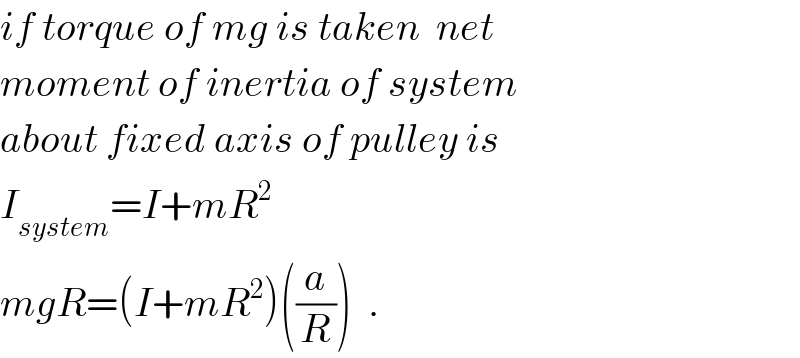
Question and Answers Forum
Question Number 33214 by Tinkutara last updated on 13/Apr/18

Commented by Tinkutara last updated on 13/Apr/18

Commented by Tinkutara last updated on 15/Apr/18
But if we consider the torque of mg instead of ma it still gives approximately the same answer. Which one is conceptually correct?
Commented by ajfour last updated on 14/Apr/18

Commented by ajfour last updated on 14/Apr/18
![mg−T=ma TR=I((a/R)) ⇒ mg=a[m+(I/R^2 )] ...(1) s=(1/2)at^2 ⇒ a=((2s)/t^2 ) using in (1) mg=((2s)/t^2 )(m+(I/R^2 )) or I = (((mgt^2 )/(2s))−m)R^2 =(((0.5×10×16)/(2×1.5))−0.5)(0.15)^2 =(((80)/3)−0.5)(0.0225)kg.m^2 =(((80)/3)−(1/2))((9/(400))) kg.m^2 =((157)/6)×(9/(400)) =((157×3)/(800)) = ((4.71)/8) = 0.59 kg.m^2 .](Q33326.png)
Commented by ajfour last updated on 15/Apr/18

Commented by Tinkutara last updated on 15/Apr/18
Both are same in value approximately. Which is correct then?
Commented by ajfour last updated on 15/Apr/18

Commented by Tinkutara last updated on 15/Apr/18
Thank you very much Sir! I got the answer. ��������
